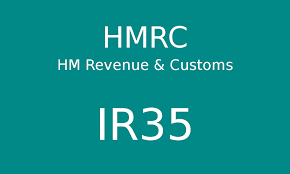
What you need to know about IR35 compliance in 2023
IR35 is a tax legislation introduced in the UK in 2000 to prevent self-employed contractors from avoiding paying the same level of tax as employees by operating through a limited company. The legislation requires those who work through a limited company, but who would be considered employees if they were contracted directly, to pay the same tax and national insurance contributions as employees.
IR35 compliance is an important issue for both businesses and individuals, as non-compliance can lead to significant financial penalties. It is the responsibility of the individual contractor to determine their IR35 status, and if they are found to be inside IR35, they must pay the appropriate tax and national insurance contributions.
There are several factors that determine whether a contractor falls inside or outside IR35. These include the level of control the company has over the contractor’s work, whether the contractor is able to provide a substitute to do their work, and whether the contractor is providing a personal service to the company.
One of the main challenges with IR35 is determining a contractor’s status. This can be difficult, as there is no clear definition of what constitutes a genuine contractor versus an employee. The decision ultimately depends on the specific circumstances of the individual’s working arrangement.
To help businesses and contractors determine their IR35 status, HM Revenue and Customs (HMRC) has developed the CEST (Check Employment Status for Tax) tool. This online tool allows individuals to input information about their working arrangements and receive a determination of their IR35 status. However, the CEST tool has faced criticism for its lack of accuracy, and many contractors and businesses choose to seek professional advice when determining IR35 status.
In recent years, there has been a significant increase in the number of IR35 investigations by HMRC. This has led to concerns among contractors and businesses about the potential impact of IR35 on the gig economy. Some have argued that the legislation is outdated and does not adequately reflect the nature of modern working arrangements. Others have called for further clarification and guidance on IR35 to help reduce uncertainty and ensure compliance.
Overall, IR35 is an important piece of tax legislation that aims to ensure that self-employed contractors pay the same level of tax as employees. Compliance with IR35 is essential for both businesses and individuals to avoid financial penalties. While there have been criticisms of the CEST tool and calls for further guidance on IR35, it remains an important part of the UK tax system.
If you have any questions about how IR35 or umbrella company compliance get in touch info@umbrellacheck.org.uk



